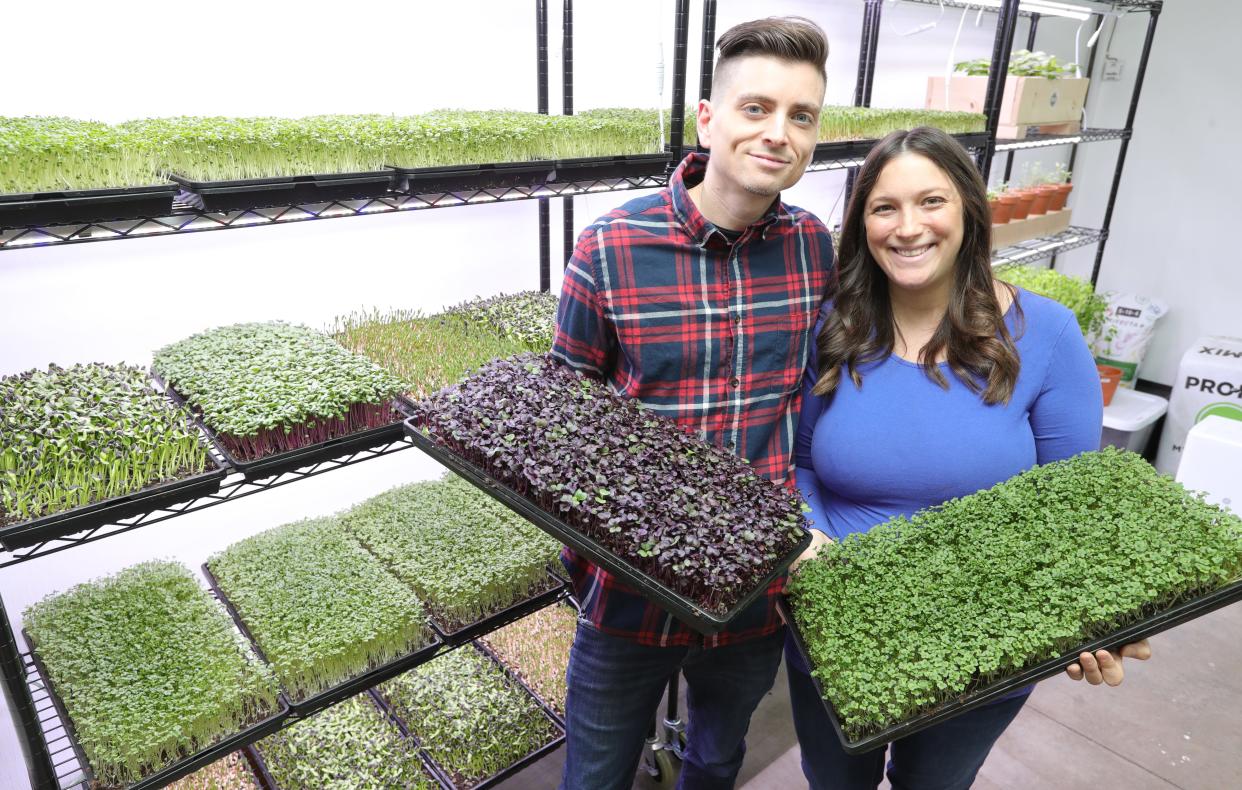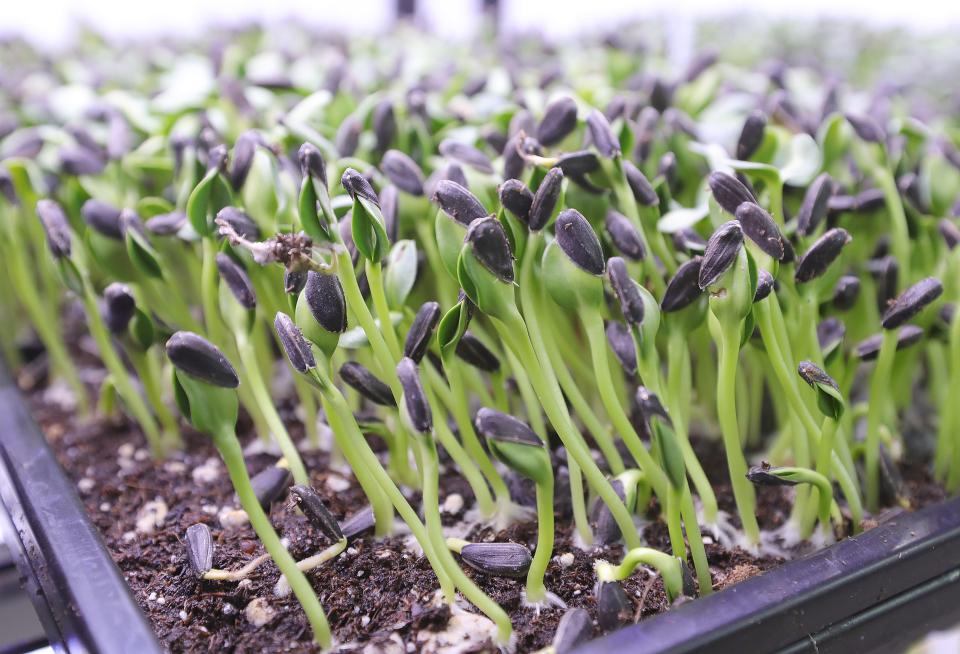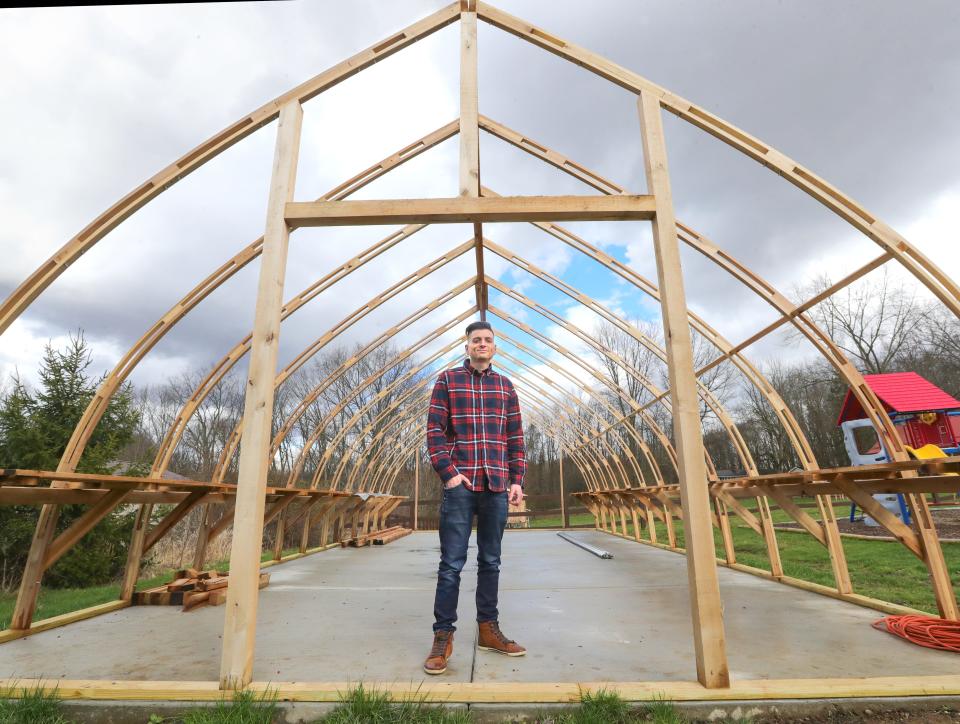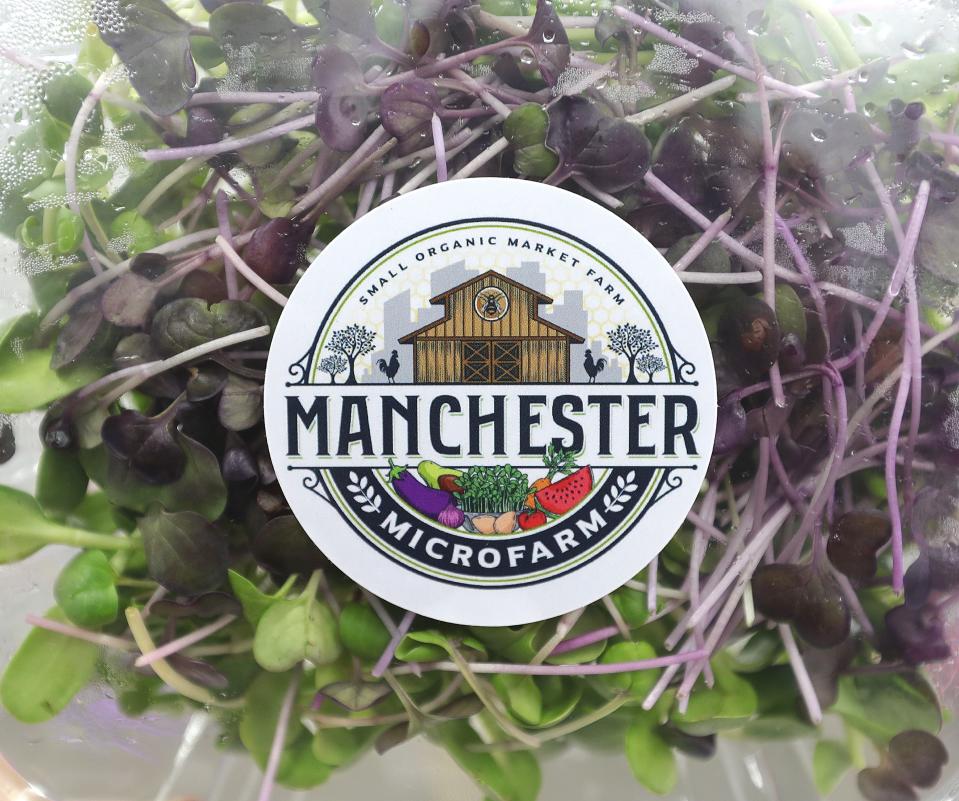New Franklin micro farm aims to cultivate sustainability, profitability

New Franklin resident James Laska knew while working at the W. H. Sammis Power Plant in Jefferson County he had to do something else.
The coal plant was dark and dingy, and affected his health.
"I was working there terrible hours," he said.
Laska, who now schedules planned outages for new transmission lines and substations, thought about side businesses he could develop that would take him far from the coal plant.
"Whatever I do next," he told himself, "it's going to be the direct opposite."

After trying out some businesses that didn't fit what he and his wife, a nutritionist, wanted to do, Laska settled on something the direct opposite of a dark and dingy coal-fired plant.
Last year, the Laskas bought a home on four acres of land, and in January they started Manchester Micro Farm.
Moving toward a more self-sufficient lifestyle
As farms go, it is micro in size. But that's not what the name of the farm refers to.
The "micro" part of the name is for the Laskas' microgreens products: radish, pea, sunflower and broccoli.
The Laskas also raise chickens at their farm, selling eggs at $5 a dozen. Deana Laska makes pancake, biscuit and cornbread mixes and a sourdough starter, all available on the Manchester Micro Farm website at https://manchestermicrofarm.com/.
To top it all off, the home is outfitted with solar panels that provide electricity for the burgeoning operation.

"(We have) 27 solar panels," James Laska said. "Enough to power everything."
The return of a 1970s trend
The lure of being more economically self-sufficient has always been around, but it jumped in popularity in the 1960s and 1970s with the start of the sustainability movement that spawned many green products that remain today. Think granola and food cooperatives.
Interest in the idea has waxed and waned over the decades, but has enjoyed a resurgence in the U.S. for at least a decade.
Painful inflation, political uncertainty and concern for the environment have all helped fuel interest in becoming more self-reliant. For some, that means growing their own food or supplying their own energy.
Others take it to another level, seeking to live off the grid as much as possible to minimize their dependence on modern technology and conveniences.
A survey in June by the Organisation for Economic Co-operation and Development found that 65% of the 17,000 people questioned said they'd be willing to change their ways to create a more sustainable existence.
Those changes can translate to a healthier lifestyle, and for producers, can open up potential markets for a host of products like organic foods, solar power panels, reusable products and electric vehicles.
In the Laskas' case, microgreens presented an opportunity for the side job James Laska wanted to develop.
The benefits of microgreens
Last year, the Laskas tested the best microgreens to grow and how to grow them. In January, they started their microgreens business, calculating that direct delivery to customers would help boost interest in and sales of their product.
Since then, they've gone from nothing to 25-30 deliveries a week.
"Right now, we just deliver out of our personal vehicle," said Deana Laska. "Our growth has been shocking, yes."
They've done little advertising to date, but one Facebook ad and word of mouth have fueled steady growth, James Laska said.
The Laskas are building a greenhouse to accommodate growth and are already looking at other microgreen products, like arugula, basil and cilantro.
Growing popularity of microgreens
According to a Research and Markets report, the U.S. market for microgreens this year will reach about $1.74 billion. That's expected to rise to $2.86 billion by 2029.
Growth is being fueled in large part by the nutritional value of the product; the young plants can contain four to 40 times as much as the mature plant. They can be used in salads, on sandwiches or in various dishes and grow quickly — about 10 days, James Laska said.
The microgreens and Manchester Micro Farm's other products are all organic, said Deana Laska.
Manchester Micro Farm a family operation
The Laska children, Lily, 5, and Stella, 2, are on board with the micro greens product, helping their parents where they can. They're also satisfied consumers of the farm's products, from micro greens to eggs.

"It tastes good," Lily said.
The taste of the microgreens vary, with the radish on the spicy side and the sunflower buttery.
"We're (growing) things that are very flavorful," said Deana Laska.
James Laska said the farm, unlike other side jobs he tried, satisfies his desire to "do the direct opposite."
"This is the one, because I love it," he said.
Leave a message for Alan Ashworth at 330-996-3859 or email him at aashworth@gannett.com. Follow him on Twitter at @newsalanbeaconj or Facebook at www.facebook.com/alan.newsman.
This article originally appeared on Akron Beacon Journal: New Franklin micro farm aims to cultivate sustainability, profits

